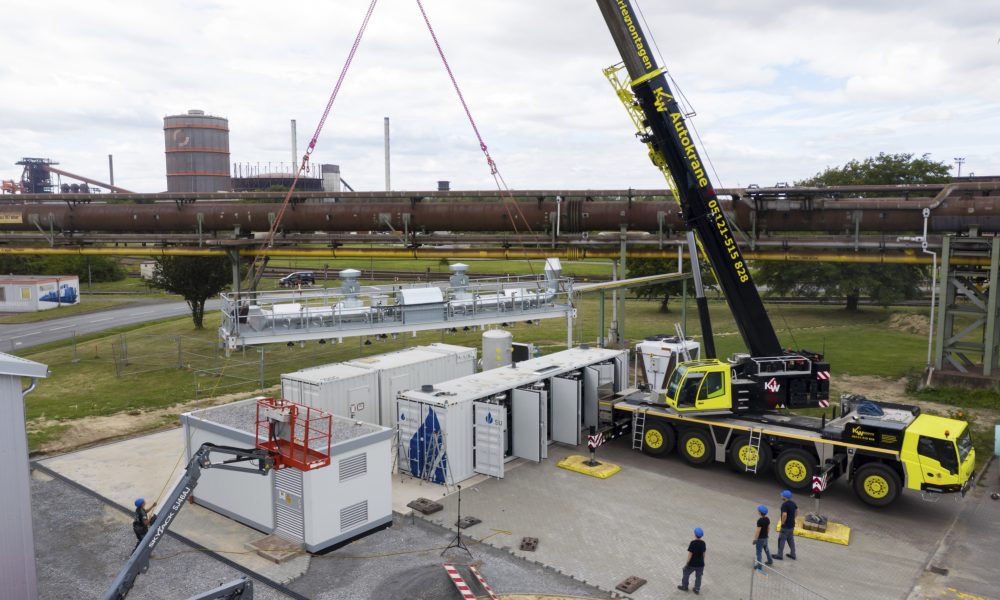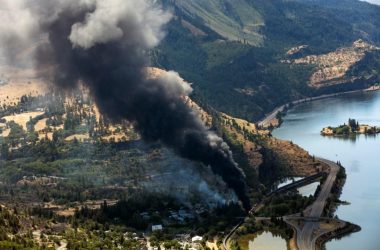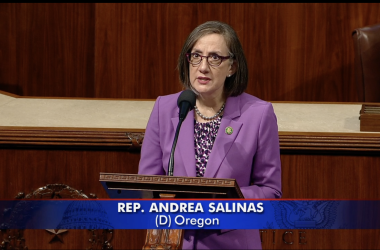Oregon’s first green hydrogen production project has been shelved after public pushback over potential environmental and health impacts.
NW Natural, the state’s largest natural gas provider, had proposed to the Oregon Public Utilities Commission in August a plan to create green hydrogen to blend into its natural gas. The company would have pumped the blended gas to 2,500 customers in west Eugene by early 2024.
It pitched the project as an experimental way to reduce its greenhouse gas emissions and to hone production of green hydrogen, which is made when electricity powered from renewable sources is run through water to separate oxygen and hydrogen. The hydrogen is trapped and blended into the natural gas, which is primarily methane, a potent greenhouse gas.
Environmental and social justice groups pushed back, saying the project had little emissions-reduction benefit. They also said NW Natural hadn’t undertaken an analysis of health and safety risks to customers who would burn the fuel in their homes, that the $10 million price tag was too costly and the company’s current customers across the state would be left holding the bill.
Among the six groups that intervened in the approvals process are the NAACP of Eugene-Springfield, Oregon Physicians for Social Responsibility and the Sierra Club.
NW Natural withdrew its proposal on Tuesday. In the filing to withdraw, NW Natural explained why it chose to scrap the proposal altogether rather than just suspend the approvals process for a few months while it solicited more community input.
“NW Natural is seeking to convey that it is willing to engage in stakeholder outreach without a predefined time limit that would have been included as part of a motion to suspend the procedural schedule, and that it is willing to consider changes to the project in light of such outreach,” NW Natural attorney Ryan Sigurdson wrote. The company had held two meetings with community members prior to August. The company could still file an application for the same project or a revised version of the project in the future, according to the filing.
Critics of the project were particularly concerned with where the blended natural gas would end up.
About 66% of the residents in one west Eugene neighborhood that would be receiving it are considered low-income, and its home to a larger share of people of color compared to the rest of Eugene, according to the coalition of environmental and social justice groups. Residents are already in an area that deals with high levels of air pollution from nearby factories and with higher rates of childhood asthma compared with the rest of the city, according to an analysis from the Eugene-based nonprofit Beyond Toxics.
When hydrogen is used in a fuel cell, such as for a car, it gives off no emissions, but when it is combusted for heat or for cooking it generates nitrogen oxide, which can cause respiratory issues, according to the Centers for Disease Control and Prevention.
“Eugene residents will not be forced to be guinea pigs for experimental and dangerous technology that perpetrates fossil fuel infrastructure, environmental injustices and more air toxics,” Lisa Arkin, executive director of Beyond Toxics, said in a statement.
“This project was absolutely unacceptable, and its withdrawal is a testament to the power of community opposition.”
Oregon Capital Chronicle is part of States Newsroom, a network of news bureaus supported by grants and a coalition of donors as a 501c(3) public charity. Oregon Capital Chronicle maintains editorial independence. Contact Editor Lynne Terry for questions: [email protected]. Follow Oregon Capital Chronicle on Facebook and Twitter.
STORY TIP OR IDEA? Send an email to Salem Reporter’s news team: [email protected].

Alex Baumhardt has been a national radio producer focusing on education for American Public Media since 2017. She has reported from the Arctic to the Antarctic for national and international media, and from Minnesota and Oregon for The Washington Post. She previously worked in Iceland and Qatar and was a Fulbright scholar in Spain where she earned a master's degree in digital media. She's been a kayaking guide in Alaska, farmed on four continents and worked the night shift at several bakeries to support her reporting along the way.









